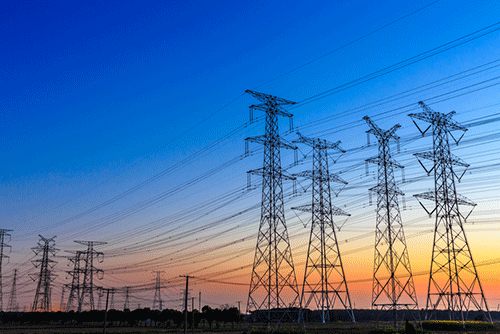Namibia has the highest cost of electricity in the southern African region for commercial and large-scale businesses, making it difficult to attract manufacturers and businesses. Part of the reason for the high cost of power is that Namibia still imports about 60% of electricity from neighbouring countries, including from Eskom in South Africa.
This cost of electricity concern was raised by the CEO of Alensy Energy Solutions, Norbert Dorgeloh, at the fifth Windhoek mayoral business forum held this week. Ironically, Namibia has some of the best renewable energy resources - solar and wind - in the world. These resources have the potential to make the country self-sufficient in terms of power-generation on a scale that can be both price and carbon-competitive with similar producers.
Regarding the reduction and stabilisation of electricity supply, Dorgeloh encouraged the development of self-generation with low-cost renewable energy, saying different technologies can be deployed such as PV solar, wind, biogas and battery storage for peak saving.
In terms of PV solar for commercial purposes, he noted that Namibia has a well-defined net-metering policy that has been included in the Government Gazette. This allows businesses to generate some of their electrical needs from renewable sources, which is currently the cheapest source of production on a commercial scale.
In proposing solutions to the sector, Dorgeloh said Namibia must move away from importing more electricity from the likes of Eskom.
He, therefore, recommended that the national policy measures must increase the 30% threshold for self-procurement by transmission customers.
“The reliability of the grid is the challenge when implementing multiple renewable energy sources, but it is not an excuse to avoid implementation. NamPower must use the reliability charge on all transmission electricity flows to implement storage solutions and emergency power units to be a 100% self-generating nation,” he added.
At the same occasion, Windhoek mayor Job Amupanda said conversations should be more about changing things in the economy beyond Covid-19 because the economy was already struggling before the pandemic.
He noted that the city contributes about 33% to gross domestic product (GDP) and the aim is to increase this to 36%, which he said can be achieved through appropriate developments. “We have more than 5 000 businesses registered in Windhoek. We want to have a business-friendly environment, and I remain confident in the future of Windhoek,” he said.
The mayor further advised the country to get involved with import substitution industrialisation (ISI), which is a trade and economic policy advocating for the replacement of foreign imports with domestic production. It is based on the premise that a country should attempt to reduce its foreign dependency through the local production of industrialised products.
The primary goal of ISI is to protect , strengthen and grow local industries using a variety of tactics, including tariffs, import quotas and subsidised government loans.
Meanwhile, the city’s finance executive Jenny Comalie said the aim remains to enhance the quality of life of people in the city by rendering efficient and effective municipal services. She further touched on the direct impact from Covid-19, which she said led to a significant drop in revenue from water and electricity revenue- generation. This was attributed to the closure of businesses during the state of emergency last year.


